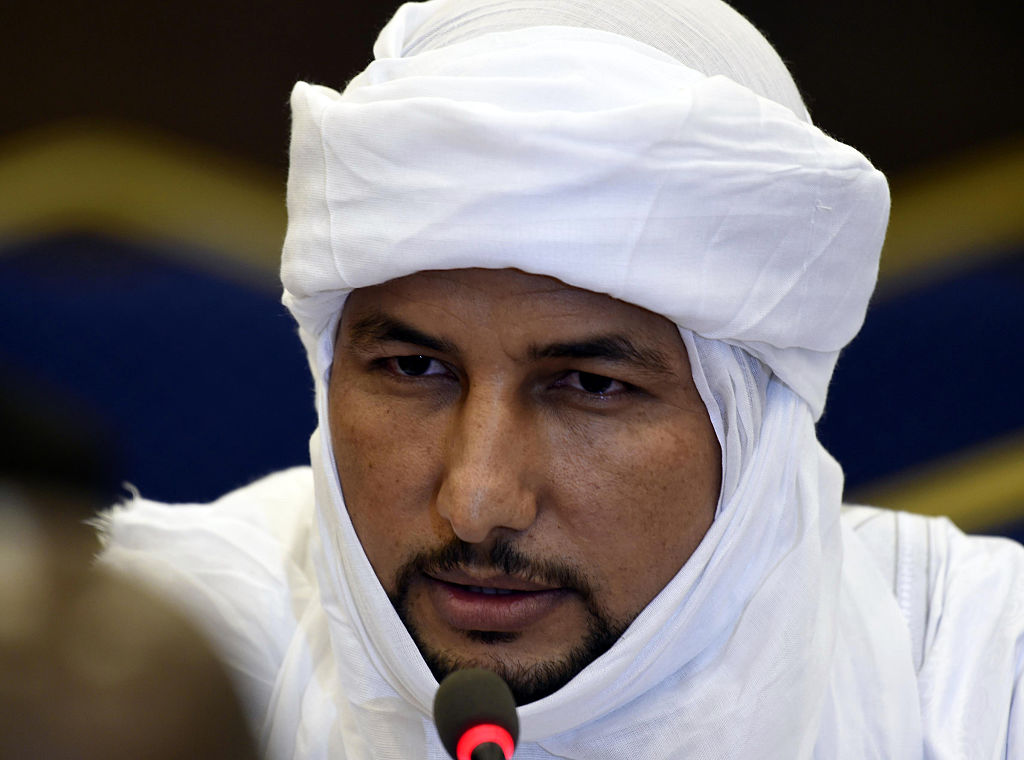ADF STAFF
Tuareg rebels in northern Mali recently announced the formation of a new coalition to fight the junta-led government for control of the territory known as Azawad.
The new alliance, known as the Permanent Strategic Framework for the Defense of the People of Azawad (CSP-DPA), is led by Bilal Ag Acherif, a key figure in the 12-year-old rebellion. Originally led by Tuareg fighters, the rebellion has drawn support from groups loyal to al-Qaida, leading to acts of terrorism. Acherif maintains that his group is separate from al-Qaida.
In forming the CSP-DPA, rebel leaders denounced terrorism, while calling on supporters of the Azawad region to unite to defend the territory.
“One of the primary and major objectives of the new structure is to obtain by all means a political and legal status for the territory of Azawad,” the leadership said in announcing the formation of the CSP-DPA.
Mali’s junta took power in 2020 after accusing the country’s civilian government of failing to rein in the rebellion in the north. Since then, the junta leaders have themselves struggled to put an end to terrorist activities.
In 2023, the junta recruited Russia’s Wagner Group, now rebranded as Africa Corps, to help them take on the Tuareg rebels. Starting in August of that year, fighting began to escalate between Tuareg rebels and government forces backed by Wagner mercenaries.
“The aim is to control as much territory as possible with the help of Russian mercenaries,” Ulf Laessing, head of the Konrad Adenauer Foundation’s Sahel Program in Bamako, told DW.
Aided by Wagner, the Malian military took control of Kidal, a center of rebel activities in northeast Mali. The assault on Kidal, which include drone attacks, killed dozens of women and children and forced nearly 12,000 people to flee their homes.
Kidal is part of the territory Tuaregs identify as Azawad that includes parts of southern Algeria, eastern Mali, and western Niger. The city was the location of rebel victories against government forces in 2012 and 2014.
In January, the junta announced it would no longer honor the Malian government’s 2015 peace deal with the northern rebels.
Fighting has increased since then, having accelerated as the United Nations met the junta’s demand to end its decadelong Multidimensional Integrated Stabilization Mission in Mali in August 2023. In recent weeks, the junta has banned political parties and announced it will remain in power for three more years.
Since capturing Kidal, government forces have done little while rebels elsewhere in the country have felt emboldened, according to observers.
“Guarding and supplying Kidal is difficult, which means that important routes in the center of the country are less guarded, and radical Islamic actors are spreading in this region,” Christian Klatt, head of the Friedrich Ebert Foundation in Bamako, told DW.
The creation of the CSP-DPA is a reminder that Mali’s junta has so far failed to quash the Tuareg rebellion even as leaders boost their military presence with help from Russia and throttle free speech in the name of preventing terrorism.
“Azawadiens were left with no other choice but to retaliate after several of their sites were attacked by the Malian army and the Wagner mercenaries,” Acherif told the International Center for Dialogue Initiatives last December. “Reaching a solution will require a formula that gives Azawadiens autonomy as well as the withdrawal of the putschists from our territory.”
In response to attacks by the Wagner Group and the Malian military, rebel groups have shifted their tactics to hit-and-run attacks as well as blockades and roadside bombs targeting the military.
“They avoid open combat because they see that they have no chance against the Russian mercenaries and the Malian army,” Laessing said. “On the other hand, the Malian Army is also not in a position to control this huge country. There will always be gaps.”

